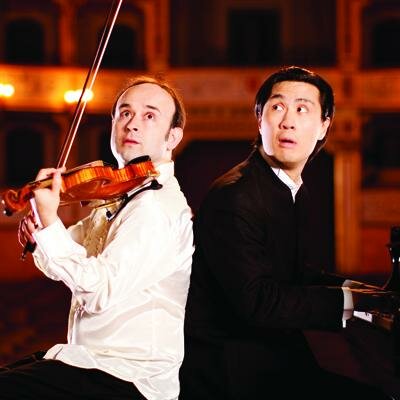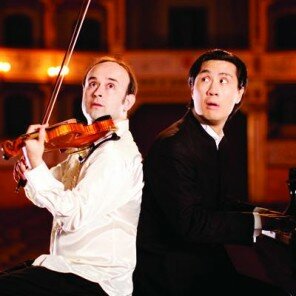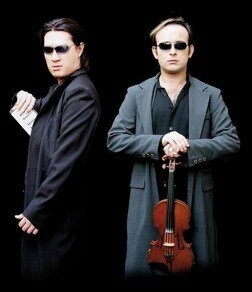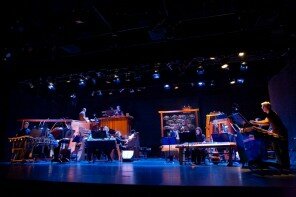As the summer sun sets and fall begins, Seattle’s musicians are returning to the city’s halls and auditoriums for the start of a new concert season. The Seattle Symphony is always one of the first to kick things off with their annual opening night concert and gala in mid-September. Several other early-bird ensembles will follow suit, though many local groups don’t begin their concert season until next month.
Still, September might be one of the best months to catch a concert in Seattle. Crowds are smaller, programming is adventurous, and there’s a palpable sense of excitement in the air about the season ahead.
Sep. 13 — You’ve heard of Tchaikovsky, Prokofiev, and Rachmaninoff, but do you know Frolov, Shchedrin, and Zapolsky? Experience works for violin and piano by both beloved masters and lesser known talents at the Russian Chamber Music Foundation of Seattle‘s first concert of the season, “Russian Kaleidoscope”.
Sep. 15 — Lang Lang returns to Benaroya Hall for the Seattle Symphony‘s opening night concert and gala. The ebullient pianist performs Prokofiev’s Piano Concerto No. 3, a masterpiece full of keyboard fireworks. The orchestra gets plenty of time in the spotlight as well with a colorful medley of folk dances by Brahms, Dvořák, and Bartók.
Sep. 19 — Town Hall Seattle celebrates composers of the 20th and 21st centuries with the ever-popular TownMusic series. The 2013-14 season kicks off with a concert by vocal ensemble Roomful of Teeth. The 8-person group received a lot of press earlier this year when member Caroline Shaw won the 2013 Pulitzer Prize for Music. Join TownMusic artistic director Joshua Roman before the show for a happy hour and season preview.
Sep. 20 – 22 — Hear three brand-new works for a cappella chorus performed by contemporary choral ensemble The Esoterics. These choral pieces were winners of the ensemble’s annual Polyphonos composition competition. This year’s winning composers hail from Massachusetts, Pennsylvania, and British Columbia and will all be on hand for the premiere of their works.
Sep. 22 — Eclectic performances! Interactive music classes! Food trucks! The Seattle Symphony‘s free Day of Music packs Benaroya Hall with music and art for all ages. Watch music director Ludovic Morlot conduct the orchestra, then wander through the building to catch a variety of local chamber musicians, rockers, rappers, and jazz cats in action.
Sep. 27 – Oct. 6 — Pacific Northwest Ballet honors Twyla Tharp with Air Twyla, a set of three works celebrating the renowned choreographer. The production spans thirty years of Tharp’s career, ranging from 1982’s ballroom-flavored Nine Sinatra Songs to the world premiere performance of Waiting at the Station.
Sep. 28 — Travel back in time to the English Renaissance with the Byrd Ensemble. They’ll sing music by Thomas Tallis, William Byrd, and other famous Renaissance Brits. The program culminates in a performance of Alessandro Striggio’s Agnus dei, which contains 60 independent vocal parts.
Like what you see? Follow us on Facebook and the Twittersphere for more like this.




